AstraZeneca to increase early patient access to new medicines in Vietnam
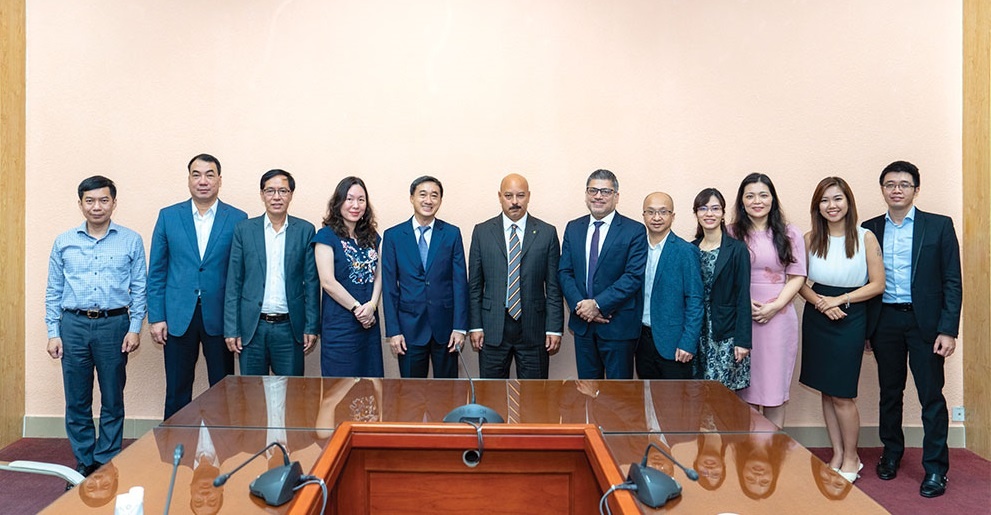 |
| Dr. John L. Perez last week met with Ministry of Health leaders and representatives, as well as various healthcare partners |
What are the focuses of your Vietnam visit and how does it fit into AstraZeneca’s business strategy in the Southeast Asian country?
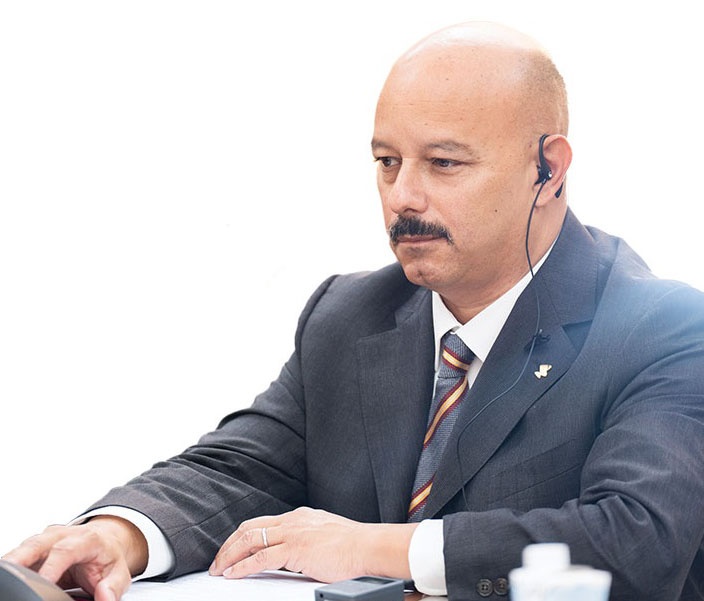 |
| Dr. John L. Perez, senior vice president of the Vaccines and Immune Therapies Unit at AstraZeneca |
I am an infectious disease physician with a passion for vaccines and immune therapies, and I’ve been in the research and development (R&D) sector in this area for 19 years.
During this visit, I’ve been fortunate to meet with Deputy Minister of Health Tran Van Thuan, along with leaders and representatives of several departments at the Ministry of Health and various healthcare partners. Our goal is to discuss how AstraZeneca can support Vietnam to develop pharmaceutical R&D and uplift the capabilities of clinical trials in the vaccines and immune therapies area.
My colleagues here have been partnering with the government and the Ministry of Health in many high-impact programmes, especially to ensure patients’ access to high-quality medicines.
We are investing $25 million into advancing R&D here from 2020 to 2024, running over 40 clinical trials involving close to 3,000 local patients, in partnership with 44 hospitals across the country to test many new medicines.
Having more Vietnamese patients included in clinical trials alongside global populations will help to ensure that the vaccines and medicines developed best reflect the needs of local communities and provide them with the right defence against different infectious diseases. This will also increase Vietnamese people’s early access to new, life-saving therapies. We hope to develop more products that will be effective and safe for local patients.
AstraZeneca has had a significant impact on the fight against the pandemic worldwide. If there are any takeaways from this period, what do you hope people will remember?
Looking back on our journey of collaboration with the University of Oxford, COVAX, governments, and other partners around the world, amongst all the different things we were able to contribute to this united fight against the virus, I think everything boils down to how many lives we were able to save.
We’ve been able to deliver over three billion vaccine doses to 180 countries. In the past, the process to develop new vaccines usually took years. By independent estimates, within the first 12 months of the roll-out, our vaccine helped to prevent 6.3 million pandemic-related deaths across the globe, including over 232,000 in Vietnam.
So, if it had not been for our vaccine which was the first to be approved and used in Vietnam, the mortality here could have been much higher than the 43,000 deaths currently recorded. We are proud of the work we have done and are very grateful for the role of Vietnam in our collective success.
As the Vietnamese government has transitioned to living safely with the pandemic, are there any precautions we need to continue to take?
I’m thankful that it has now become manageable enough to allow us to recover the economy, and travel between countries, enabling my trip to Vietnam, for instance. However, the virus is not standing still either. The prevalence of the latest Omicron variant which is highly transmissible proves that SARS-CoV-2 is ever evolving.
It is critical that we continue to adapt to and fight this virus because we do not want to go back to the dark days of before. Therefore, I think the government is right to continue expanding booster coverage for the community to maintain their protection.
However, vaccines may not be adequate to protect a portion of our population that is immunocompromised. Because their immune systems do not work well due to conditions such as cancer, organ transplants, and immunosuppressive drugs, their bodies can’t mount an adequate response to vaccines, thus putting them at increased risk of having severe disease, being hospitalised, or dying from COVID-19.
I have just visited the Intensive Care Unit of the National Hospital for Tropical Diseases this week, and learned that out of 46 patients on ventilators, most of them are immunocompromised or have various underlying conditions.
As a society, we hold the responsibility to address their unmet need for an extra layer of protection. We are proud that we are working closely with our partners to deliver our long-acting antibody combination to enhance protection for the patients in need, ensuring that we leave no one behind.
Related to vaccines, is your group developing any next-generation booster vaccines to target brand new variants?
We believe it is more important that countries prioritise boosting their populations with the COVID-19 vaccines currently available to them, to minimise any delay in giving people the protection they need.
The risk of developing some serious outcomes, such as hospitalisation and death, becomes higher if vaccination programmes are delayed while awaiting variant-specific vaccines.
Importantly, numerous global real-world studies have shown that currently available vaccines, including AstraZeneca’s vaccine, provide consistent, high levels of protection against severe disease across different variants, including Omicron.
Does AstraZeneca plan to stay in the vaccine field in the long run?
Yes, that plan is already in place. Last year, we established the Vaccines and Immune Therapies Unit at AstraZeneca, making this an interesting area for focus.
We boast a strong portfolio of medicines that include various vaccines for COVID-19 and also influenza, long-acting antibodies for COVID-19 and respiratory syncytial virus, and a pipeline of next-generation therapeutics and scientific platforms.
AstraZeneca can make a difference with its strong capabilities in this area. We have 20 years of expertise with monoclonal antibodies in respiratory infectious diseases, including passive immunisation and prophylaxis use, as well as the vaccine capabilities we demonstrated by supplying 180 countries.
Our focus is on providing long-lasting immunity to millions of people where the burden of disease is the greatest.
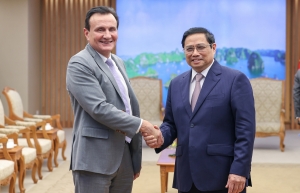 | AstraZeneca reinforces partnership with Vietnam in sustainable healthcare development The government and AstraZeneca have agreed to work towards a long-term, strategic partnership to comprehensively enhance healthcare and sustainable development for the benefit of all Vietnamese people. |
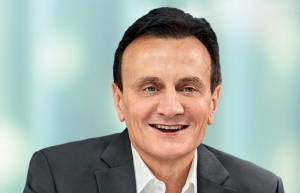 | AstraZeneca’s Pascal Soriot awarded British knighthood AstraZeneca’s CEO Pascal Soriot, on June 2 received the British knighthood for services to the UK life sciences and leadership in the global response to the pandemic in the Queen’s Birthday Honours 2022. |
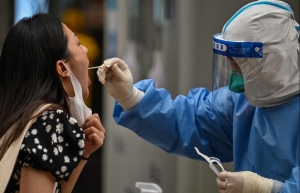 | AstraZeneca claims positive Covid medicine trial A treatment for people at risk of death from coronavirus has revealed good results in a late-stage trial, its maker AstraZeneca announced Wednesday. |
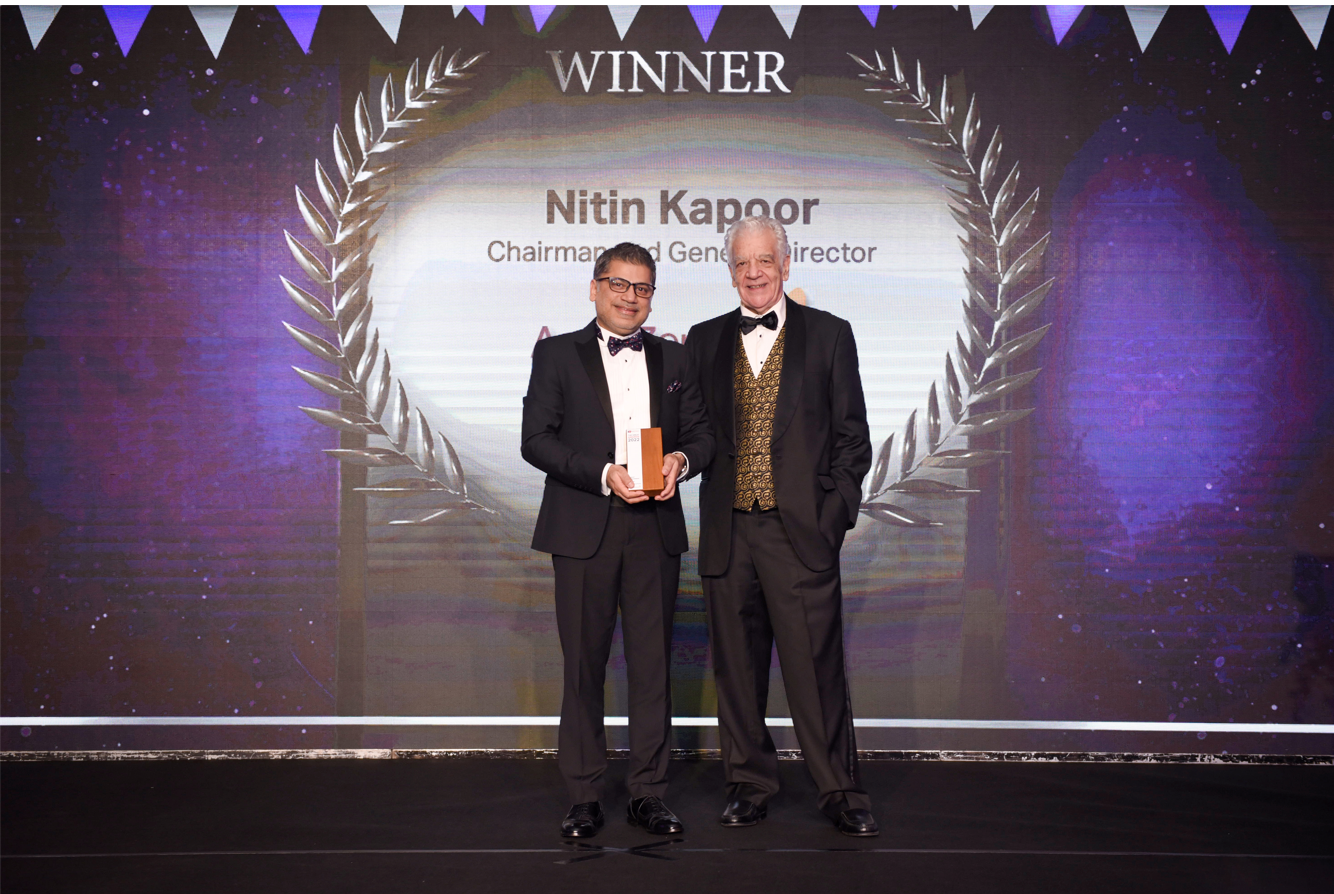 | Nitin Kapoor of AstraZeneca Vietnam wins award for Great Leadership Nitin Kapoor, chairman and general director of AstraZeneca Vietnam and Asia Area Frontier Markets and vice president of International Vaccines and Immune Therapies has won an award for Great Leadership from the British Chamber of Commerce (BritCham). |
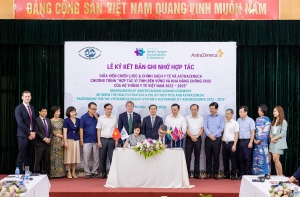 | AstraZeneca enhancing sustainability and resilience of healthcare system The Health Strategy and Policy Institute (HSPI) under the Ministry of Health and AstraZeneca Vietnam on July 20 signed an MoU to commence the Partnership for the Vietnamese Health System’s Sustainability and Resilience (PHSSR) programme in 2022-2025. |
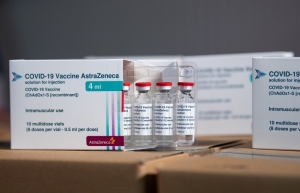 | AstraZeneca’s COVID-19 vaccine preventing over 230,000 deaths in Vietnam AstraZeneca’s COVID-19 vaccine has been estimated to have prevented 232,766 deaths in Vietnam, according to an independent assessment of vaccine effectiveness conducted by Airfinity. |
What the stars mean:
★ Poor ★ ★ Promising ★★★ Good ★★★★ Very good ★★★★★ Exceptional
Related Contents
Latest News
More News
- Digital shift reshaping Vietnam’s real estate brokerages (December 31, 2025 | 18:54)
- Allen & Gledhill recognised as Outstanding M&A Advisory Firm (December 18, 2025 | 14:19)
- Inside Lego Manufacturing Vietnam (December 18, 2025 | 11:45)
- The next leap in Cloud AI (December 11, 2025 | 18:19)
- Vietnam’s telecom industry: the next stage of growth (December 11, 2025 | 18:18)
- Five tech predictions for 2026 and beyond: new era of AI (December 11, 2025 | 18:16)
- CONINCO announces new chairman and CEO (December 10, 2025 | 11:00)
- How AWS is powering the next-gen data era (December 09, 2025 | 13:14)
- Outlook in M&A solid for Singapore (December 08, 2025 | 10:31)
- Vietnamese firms are resetting their strategy for global markets (December 05, 2025 | 17:04)

 Tag:
Tag:




















 Mobile Version
Mobile Version